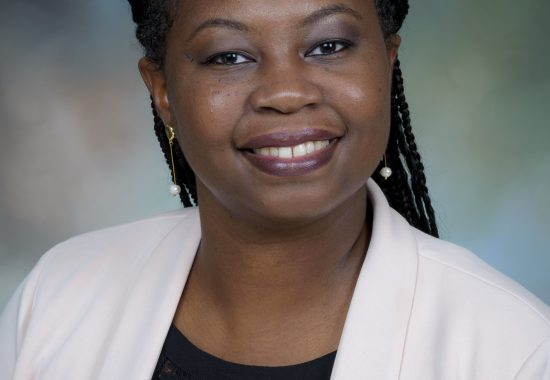In celebration of Black History Month, MRRI is excited to be highlighting the careers of Black scientists in neuroscience and neurorehabilitation and their important contributions to the field. One such scientist who has been a valued colleague and collaborator in the area of traumatic brain injury research is Monique R. Pappadis, MEd, PhD, PhD. Dr. Pappadis is a tenured Associate Professor and Vice Chair in the Department of Population Health and Health Disparities at the University of Texas Medical Branch (UTMB) at Galveston. In addition, Dr. Pappadis is an Investigator and the Director of Dissemination and Cultural Humility at TIRR Memorial Hermann’s Brain Injury Research Center in Houston, Texas. Learn more about Dr. Pappadis, her career, and her research in our interview below.
1) How did you get interested in rehabilitation research?
I became interested in rehabilitation when I got my first research job after finishing my postbaccalaureate degree in psychology. I worked as a Research Associate at the Brain Injury Research Center at TIRR Memorial Hermann under the supervision and mentorship of Angelle Sander, PhD, and Margaret Struchen, PhD. I worked in this capacity for 11 years before becoming a faculty member at the University of Texas Medical Branch at Galveston. Thankfully, I am still able to hold an appointment with TIRR Memorial Hermann Hospital and collaborate with their researchers.
2) Can you tell us more about your research and/or a contribution to the field of neurorehabilitation research that you are most proud of?
Broadly speaking, my research addresses disparities in care and outcomes after traumatic brain injury and stroke and coming up with solutions to address the needs of underserved populations with disabilities. I am also exploring ways to better support and protect older adults with cognitive impairments from experiencing harm, neglect, or exploitation.
3) Can you tell us more about your interactions with MRRI and MRRI scientists?
My interactions with MRRI and MRRI scientists started very early in my career due to being a data collector for the Traumatic Brain Injury Model System National Database study. It also helped that my research supervisors are friends with some of the greats of MRRI — John Whyte, MD, PhD, and Tessa Hart, PhD. I am thankful that I have co-authored manuscripts and/or served on national stakeholder meetings with Drs. Whyte and Hart. I have also developed a great professional relationship with Amanda Rabinowitz, PhD, and Umesh “Umi” Venkatesan, PhD, where we are collaborating on TBI Model Systems-related projects. Most recently, I was invited as a Visiting Scholar and had the opportunity to share my research with the MRRI research and clinical teams.
4) What have you enjoyed most about working with the team at MRRI?
I have enjoyed working with so many professionals who are creative thinkers and have a passion for improving the lives of individuals with disabilities.
5) As an expert in the field, what do you think are the biggest challenges or opportunities right now in rehabilitation and rehabilitation research?
One of the biggest challenges is related to funding. We need more funding to support rehabilitation research and funding to support treatment and services during acute and post-acute care, as well as within the community. We need to be able to still support individuals who are aging with disability who will have varying needs with time.
Thank you to Brandon Knight for inspiring the Black History Month blog series.


